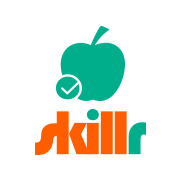Description

Journal Research Publication

UpGrad Education
Comprehensive Overview: Journal Research Publication vs UpGrad Education
To provide a comprehensive overview of Journal Research Publication by UpGrad Education, let's break down the areas you are interested in: primary functions and target markets, comparison in terms of market share and user base, and key differentiating factors. However, it appears there may be some confusion as UpGrad Education is primarily an edtech company known for online higher education programs rather than journal research publications. Nonetheless, I'll address each area based on available information about UpGrad and similar educational ventures, focusing on the broad aspects of academic publications and education services.
a) Primary Functions and Target Markets
Primary Functions:
- Educational Programs: UpGrad offers online certificates, diplomas, and degree programs in collaboration with universities worldwide. These programs cover various fields such as data science, technology, management, law, and healthcare.
- Professional Development: They provide skill development courses designed to enhance employability and career growth.
- Collaborative Research and Resources: Although primarily known for education, firms like UpGrad may support research initiatives indirectly by providing resources, platforms for publication opportunities, and a global academic community.
Target Markets:
- Students and Professionals: Young professionals, college students, and corporate learners seeking to upgrade their skills or pivot their careers.
- Corporations: Companies looking to enhance the skills of their workforce through tailored corporate training programs.
- Academia: Universities and educational institutions aiming to broaden their online course offerings and reach.
b) Comparison in Terms of Market Share and User Base
As of the latest data, UpGrad is a significant player in the online education space, particularly in India and expanding globally. However, specific data on market share and user base concerning journal research publications would not be applicable since UpGrad is not primarily a journal publisher. Generally, in the online education market:
- Market Share: UpGrad competes with other edtech platforms like Coursera, edX, and Udacity. While exact market share figures fluctuate, UpGrad's presence is robust in its home market of India.
- User Base: UpGrad has served millions of users globally through its wide range of courses and programs. Their user base consists largely of professionals in the 25-40 age group.
c) Key Differentiating Factors
- University Partnerships and Accreditation: UpGrad sets itself apart by partnering with prestigious universities worldwide, ensuring high-quality course content that leads to accredited certifications and degrees.
- Industry-Relevant Curriculum: Focus on creating programs aligned with industry demands and emerging technologies.
- Career Support Services: Offers career counseling, mentorship, and placement assistance—a critical factor for professionals looking to gain new skills.
- Interactive Learning Experience: Emphasis on a user-friendly platform with interactive features such as live sessions, discussion forums, and peer networking.
- Flexibility and Accessibility: Online delivery allows learners to upgrade their education at their own pace, time, and place, catering to the needs of working professionals.
Conclusion
While UpGrad is not directly involved in publishing journals, its role in advancing education and professional skill development is notable. The company's focus on online learning, industry collaboration, and accreditation sets it apart in the crowded edtech market.
Contact Info

Year founded :
Not Available
Not Available
Not Available
Not Available
Not Available

Year founded :
Not Available
Not Available
Not Available
Not Available
http://www.linkedin.com/company/upgrad-education
Feature Similarity Breakdown: Journal Research Publication, UpGrad Education
Journal Research Publication platforms and UpGrad Education are fundamentally different in their core objectives and target audiences. Journal Research Publication platforms are designed to facilitate the dissemination, peer review, and accessibility of academic research, whereas UpGrad focuses on providing online education and professional development courses. However, there can be some overlapping features and distinct differences between these two:
a) Core Features in Common:
-
Content Delivery:
- Both platforms deliver educational or informative content, though of different natures—research articles for journals and educational courses for UpGrad.
-
Digital Accessibility:
- Both platforms offer digital access to their content, allowing users to reach the material online.
-
User Accounts:
- Users typically create accounts to access certain features, whether it’s downloading papers or tracking course progress.
-
Search and Discovery:
- Both platforms usually have robust search functionality allowing users to find relevant content.
-
Subscription or Purchase Model:
- Journals may require a subscription or purchase to access full articles, while UpGrad courses may require enrollment fees.
b) User Interface Comparison:
-
Journal Research Platforms:
- Typically minimalist and function-focused.
- Emphasize search functionality, with filters for topics, authors, and journals.
- Provide detailed abstracts and information regarding citations, references, etc.
- Often have tools for exporting citations in different formats.
-
UpGrad Education:
- More interactive and visually engaging to enhance learning experience.
- Incorporates multimedia elements, such as video lectures, quizzes, and interactive assignments.
- Includes progress tracking, forums for discussions, and sometimes live sessions for direct interaction with teachers.
c) Unique Features:
-
Journal Research Publication Platforms:
- Peer Review System: A core feature where submitted articles are evaluated by experts before publication.
- Citation Metrics: Tools to track citations and impact factor of articles.
- Archival and Repository Services: Long-term storage and ease of access to past research work.
-
UpGrad Education:
- Personalized Learning Journeys: Tailored course content and recommendations based on user progress and career goals.
- Career Support: Features like career counseling, resume building, and interview preparation.
- Interactive Live Sessions: Real-time classes and Q&A sessions with instructors.
- Certification: Provides industry-recognized certificates upon course completion.
While both platforms offer educational content, their approaches and features are tailored to their specific objectives: disseminating research versus providing learning paths and skill development. As such, each platform offers unique elements aligned with its core purpose.
Features

Not Available

Not Available
Best Fit Use Cases: Journal Research Publication, UpGrad Education
a) Best fit use cases for Journal Research Publication:
Types of businesses or projects:
-
Academic Institutions: Journal Research Publication is ideal for universities and research institutes that focus on advancing knowledge across various disciplines. These entities can leverage the platform for publishing scholarly articles and research findings.
-
Research Organizations: Both governmental and private research bodies benefit from Journal Research Publications to disseminate their research work, gain visibility, and contribute to the body of knowledge in science, technology, medicine, and humanities.
-
Corporate R&D Departments: Companies with strong research and development wings use journal publications to showcase innovations, patent opportunities, and collaborate with academic researchers.
-
Scientific Conferences and Workshops: Organizers can publish conference proceedings and papers, broadening the reach and impact of presented works, while ensuring proper academic scrutiny.
-
Specialized Journals and Magazines: Entities that manage journals or magazines in specialized fields use these publications to reach niche audiences with rigorously peer-reviewed content.
b) Scenarios where UpGrad Education is preferred:
Scenarios:
-
Professional Development: UpGrad is ideal for working professionals looking to upgrade their skills or transition into new career paths. Its courses are tailored for career growth, often in high-demand fields like data science, management, and technology.
-
Corporate Training: Companies seeking to upskill their workforce in the latest technologies and management techniques can partner with UpGrad for customized learning programs.
-
Higher Education Partnerships: Universities collaborating with UpGrad can leverage its platform to enrich their online course offerings, attracting more students and offering flexible learning options.
-
Entrepreneurial Skill Development: Aspiring entrepreneurs looking to gain practical business knowledge and strategic skills can choose UpGrad courses specifically designed for building and running a business.
-
Digital Transformation: Organizations implementing digital transformation can use UpGrad to train their employees in cloud computing, digital marketing, and other related technologies.
d) Catering to Different Industry Verticals and Company Sizes:
Journal Research Publication:
- Industry Verticals: Primarily caters to education, pharmaceuticals, healthcare, engineering, environmental sciences, and information technology.
- Company Sizes: Suitable for organizations of any size engaged in significant research activities, from small boutique research firms to large multinational corporations.
UpGrad Education:
- Industry Verticals: Covers technology, management, data science, machine learning, artificial intelligence, entrepreneurship, law, and more.
- Company Sizes: Scalable offerings which adapt to small startups needing skill development to large enterprises looking for widespread employee training programs. UpGrad’s online model offers flexibility and scalability, making it accessible for individual learners and large organizations alike.
Both platforms, while seemingly distinct, cater to the growing demand for information dissemination and professional development, essential across modern industry landscapes.
Pricing

Pricing Not Available

Pricing Not Available
Metrics History
Metrics History
Comparing teamSize across companies
Conclusion & Final Verdict: Journal Research Publication vs UpGrad Education
Conclusion and Final Verdict: Journal Research Publication vs UpGrad Education
a) Best Overall Value: When considering the wide array of factors such as pricing, user experience, content quality, and support services, UpGrad Education offers the best overall value. With its diverse course offerings, industry-relevant curriculum, and interactive learning platform, it provides a comprehensive educational experience. Additionally, UpGrad often includes career services and mentorship, which significantly enhances its value for those looking to improve their professional skills.
b) Pros and Cons:
Journal Research Publication:
Pros:
- Specialization: High level of specialization in specific research areas, ideal for researchers and academics.
- Depth of Content: Offers in-depth analysis and cutting-edge research findings.
- Reputation: Often associated with reputable academic bodies and institutions.
Cons:
- Cost: Access to certain journals can be expensive, limiting availability to a broader audience.
- Niche Audience: Primarily targets academics and professionals in research fields, potentially excluding general learners.
- User Engagement: Limited interactive or multimedia content compared to online courses.
UpGrad Education:
Pros:
- Comprehensive Courses: Wide range of courses across various domains tailored to industry demands.
- Interactive Learning: Use of multimedia content and live sessions to engage learners.
- Career Support: Provides mentorship, career guidance, and sometimes job placement services.
Cons:
- Pricing: Can be expensive, though often justified by added services and content.
- Time Commitment: Courses require a significant time investment, which might not suit all learners.
- Content Depth: While broad, some courses may not delve as deeply into subjects as academic publications.
c) Recommendations for Users:
For users trying to decide between Journal Research Publication and UpGrad Education, consider your primary goal. If you are an academic or professional deeply involved in research or require authoritative, peer-reviewed publications for specialized knowledge, Journal Research Publication is the appropriate choice. However, for individuals seeking to upskill, transition careers, or gain industry-relevant knowledge with practical application, UpGrad Education would be more beneficial.
Additionally, evaluate your budget, preferred learning style, and time availability. Those who prioritize interactive and structured learning with potential professional outcomes should opt for UpGrad. Conversely, if you require in-depth research articles for academic purposes, investing in Journal Research Publication access may be worthwhile.
Add to compare
Add similar companies



